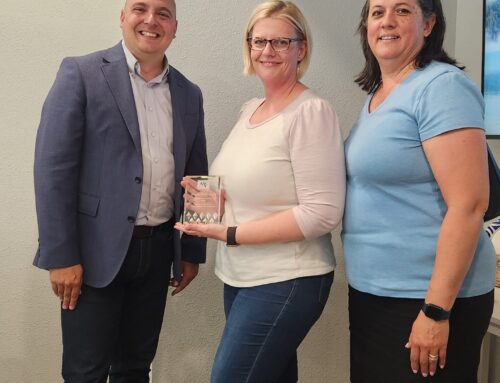Legislative Update – 5/17/2019
The House and Senate Republicans attempted to stall the passing of HB3427 last week by using tactics designed to slow the pace of the session. Senate Republicans simply did not show up to the capitol and effectively denied the necessary quorum to conduct Senate business. Senate Republicans continue to negotiate with Senate President Peter Courtney on a slew of bills and a “go home” package. They hope to be able to come to an agreement soon. This resulted in a slow legislative week last week, which would have otherwise been pretty intense as major deadlines loom. May 10th was the deadline for all policy bills to be posted for a work session in order to move forward. By May 24th, all bills must have been voted out of their second chamber policy committee in order to survive. Bills in Rules, Revenue, or Ways & Means will remain ‘in play’ through the end of the session, although many of those committees will be wrapping up their work by mid-June.
Here is the activity on major issues:
- Commercial Activity Tax – HB 3427
This $2 billion commercial activity tax was most impacted by the work stoppage last week in the Senate. It was slated for a vote in the Senate last week. This bill, which has been negotiated having many different parts, now includes the following components:
– A gross receipts tax rate of 0.57% on top line sales over $1 million;
– A 35% subtraction from receipts for labor OR the cost of goods sold (COGS), whichever is higher;
– An exemption for groceries (defined as those that qualify for ‘SNAP’ sold at retail.
Senate Republicans are trying to force the bill back to committee to lower the tax rate and/or increase the $1 million exemption.
Update as of 5/17:
The Oregon Senate, with an 18-11 party-line vote, passed this $2 billion for pre-K-12 education funding and tax proposal. The 12-member Republican caucus returned to the capitol on Monday apparently after negotiating agreements on other non-tax issues. It is sitting on the Governor’s desk waiting for her decision.
- PERS Reform – SB 1049
The bill focused on PERS Reform has finally made an appearance. On Friday last week, Speaker of the House Tina Kotek and Senate President Peter Courtney unveiled their plan to tackle the PERS cost. This is what their plan looks like:
– Tier 1 and Tier 2 members, who are public employees who entered the PERS system before 2004, would have 2.5% of their salaries diverted from their individual retirement accounts into paying off the systems debt.
– Workers hired 2004 or later (PERS Tier 3 and Tier 4), would face a lower diversion – this looks like 0.75% of their salaries.
– Public employees earning less than $30,000 a year would be exempt.
– A reduction in assumed interest rate for retirees who would use the “money match” method of calculating their pension benefits.
– Most significantly, legislators seem to have abandoned efforts to raid SAIF to cover PERS liability, which is a good development for Oregon employers.
- Cap-and-Trade – HB 2020
Legislators unveiled the latest version of the carbon pricing bill in the 84 amendments last week. The amendments made a handful of changes, failing to address some of the bigger issues affecting the business community, such as the huge cost pressures associated with natural gas and transportation fuel. The new version of the bill contains the following:
– Natural gas utilities receive 60% free allowances in 2021 that decline in 2022 in contrast to 100% for investor-owned electric utilities. Similar to California, these allowances are cosigned, which limits how the utility can use them. That means many ratepayers – particularly industrial and commercial facilities – will see rate increases beginning in 2021. This was not a win for local business communities.
– Trade-exposed manufacturers and processors are assigned a benchmark of free allowances based on the best available technology. This is an attempt to keep some of the state’s bigger job-providers from moving out-of-state.
– Transportation fuels will bear the brunt of the cost increases in the early years of the cap-and-trade program. A tax refund may be available for off-road fuels used in forestry and agriculture, but it is subject to a study of legal challenges.
– Assistance may be available to low income Oregonians to help cover cost increases for automobile fuels, propane, and home heating oil.
There is still a lot of work that needs to be done, because as it is written, the 84 amendments will still result in a competitive disadvantage for local Oregon businesses. There may be a plan to adopt the amended version of this bill by Friday, and forward the bill to the Ways & Means committee.
- Diesel Regulations – HB 2007
Negotiations have been ongoing with HB 2007, the on-road diesel engine retrofit and replacement bill. The bill is scheduled for a public hearing and work session early next week, with an amendment that is expected to:
– Scale down the phase-out and diesel retrofit requirement for on-road diesel engines to the tri-county (Metro) area which includes Clackamas County, Washington County, and Multnomah County.
– By 2029, all heavy-duty diesel trucks must have a 2007 or newer engine. Also, by 2029, all medium duty diesel trucks must have a 2010 engine or newer. Farm vehicles and motor homes will be exempt.
- Paid Family Leave – HB 2005
Paid family leave has dominated the labor conversation this session. HB 2005 is the last remaining paid family leave bill and is currently sitting in the House Rules Committee. Labor unions have threatened a ballot measure in 2020 if HB 2005 fails to pass. However, a draft policy is currently in the works to forestall a ballot measure, including the below components (which is based loosely on Washington’s paid family leave model):
– 12-weeks paid family and medical leave annually;
– All employees are eligible after they’ve earned $1,000;
– State-run insurance program, funded through payroll tax contributions;
– Payroll tax of up to 1% (60% employee paid, 40% employer paid);
– Employers with 25 or fewer employees are not required to pay the premium;
– Job protection requirements come into effect after 90 days of employment.
- Marijuana Accommodations – SB 379
This is a bit of good news, as SB 379 is officially dead. This bill would have undermined and nullified all employers’ workplace drug-free policies and would have required employers to accommodate off-duty marijuana use. Although the Senate Judiciary Committee passed the bill on a party-line vote, Senate President Peter Courtney refused to let it come to the Senate floor, with organizations and lobbyists securing enough votes to defeat the bill.
- Non-Competition Amendment – HB 2992
On May 13th, this bill relating to non-competition agreements was signed into law. This law adds new provisions and amends ORS 653.295 (https://olis.leg.state.or.us/liz/2019R1/Downloads/MeasureDocument/HB2992/Enrolled). Non-competition agreements in the employment realm are documents where employees agree not to perform work that is in direct competition against the employer. Non-competition agreements in Oregon are subject to statutory restrictions, where noncompliance makes agreement avoidable. Under HB 2992, employers now have to provide a signed, written copy of the terms of the non-competition agreement to the employee within 30 days of the employee’s termination from the employer in order for the agreement to be enforceable. This amendment only applies to non-competition agreements entered into on or after the effective date of the act. Additionally, while there are more in-depth details and exceptions, ORS 653.295 also states that:
– Employers must inform new employees in writing at least two weeks before their first day of work that the non-compete is a requirement of employment or with existing employees, the non-competition agreement must be a condition of bona fide advancement.
– Only certain classes of employees are eligible for non-competition agreements – salaried employees who engage in administrative, executive, or professional work and who perform predominantly intellectual, managerial or creative tasks where they exercise discretion and independent judgment.
– The employer must have a “protectable interest” meaning that the employee has access to trade secrets and/or sensitive and confidential information.
- Oregon sees record revenue growth
On Wednesday, the State of Oregon realized a historic and massive revenue forecast. From the previous forecast in March, every metric grew by substantial numbers due to a historic influx of revenue over the tax season.
– Available resources for the next biennium (2019-2021) grew by $770 million;
– The kicker almost doubled in size. It is now projected at $1.4 billion;
– Net reserve funds are now nearly $3.5 billion.
Economists are now projecting declines in personal income tax revenues going forward. Needless to say, the short-term forecast was truly historic and will likely tamp down on talks of additional tax revenue for the remainder of the 2019 legislative session.




